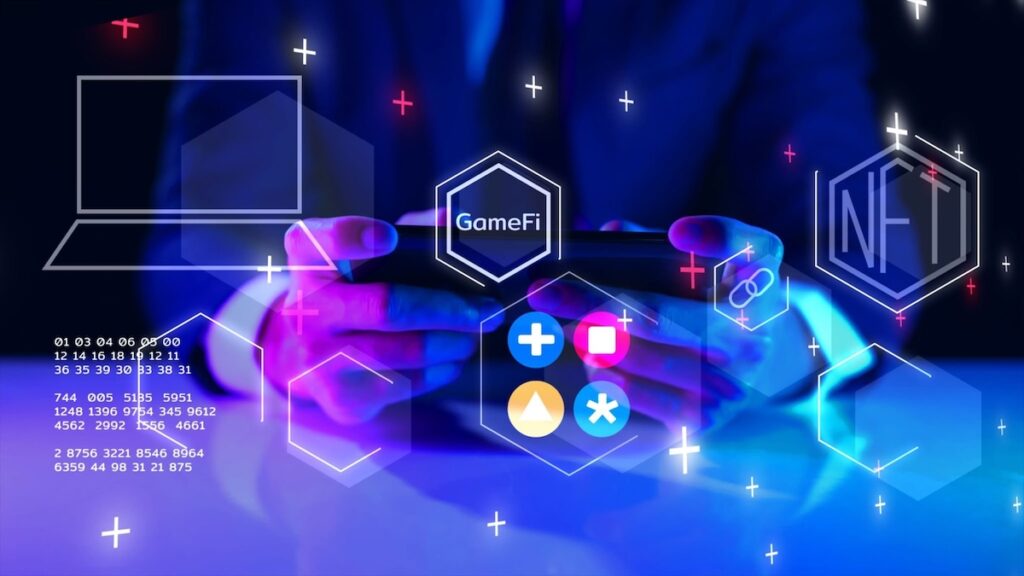What if you could experience your favorite sports events in a way that not only immerses you deeper into the action but also lets you make game-changing decisions and manage your own digital collectibles? The sports sector is undergoing a digital transformation, fueled by Web3 technologies including blockchain, smart contracts, and NFTs. These innovations are forging new pathways for Web3 fan engagement and creating decentralized sports platforms that promise transparency and security.
Imagine a world where digital sports betting is no longer confined to traditional platforms but operates seamlessly through decentralized networks, offering fans unprecedented levels of interaction and control. The advent of blockchain in sports paves the way for groundbreaking developments such as NFT sports collectibles and proof-of-attendance tokens (POAPs), enhancing fan experiences by enabling them to collect, trade, or access exclusive sports content.
As Web3 technology continues to influence the digital landscape, the sports industry stands at the forefront of this revolution. From digital ticketing systems to innovative fan-driven decision-making processes, Web3 is poised to redefine the future of fan engagement in sports.
Understanding Web3: Decentralization and Its Impact on Fan Engagement
The transformation from Web2, characterized by centralized control, to Web3, which embraces decentralized networks, is redefining the fan experience in sports. By facilitating direct interactions and enhancing transparency, this shift empowers fans and minimizes the need for intermediaries.
Decentralization in Web3
Decentralization redistributes control among network users, creating a peer-to-peer sports platform that promotes transparency and fairness. This framework allows fans to engage directly with their favorite teams, athletes, and fellow enthusiasts without centralized restrictions. Decentralized networks ensure a secure and authentic environment, fostering greater trust and direct involvement.
Integration of Blockchain Technology
The implementation of blockchain technology is pivotal in enhancing the fan experience within sports. The decentralized ledger system eliminates single points of failure, ensuring secure and equitable transactions. Smart contracts in sports facilitate automated, transparent agreements, leveraging consent mechanisms like Proof of Work or Proof of Stake. This promotes a democratized ecosystem where assets can be tokenized, reinforcing a fan-centric approach.
Benefits for Sports Fans
The decentralized networks and blockchain integration offer numerous advantages for sports fans, profoundly enhancing their engagement. Fans gain control over their digital identities and content, fostering a sense of ownership and personal connection to the sport. The incentives and seamless connectivity enabled by peer-to-peer sports platforms create an enriched fan experience. Smart contracts in sports further streamline interactions, providing a more immersive and interactive environment for enthusiasts.
NFTs and Sports: Creating New Dimensions of Engagement
As the sports industry evolves, NFTs are emerging as a groundbreaking element, transforming how fans interact with their favorite teams and athletes. By introducing digital collectibles and tradable assets, NFTs provide a verifiable form of ownership over digital memorabilia that spans video highlights, limited-edition artwork, and digital trading cards.
Digital Collectibles and Tradable Assets
Sports NFT collectibles offer fans a chance to possess unique items that can be traded on various marketplaces. These tradable sports assets range from rare video moments, and digital trading cards, to iconic play highlights. The tradable nature of these assets enhances their value and enables fans to feel a deeper connection to their favorite sports.
Innovative Uses of NFTs in Sports
NFTs have paved the way for innovative fan tokens and blockchain sports memorabilia. Fans can now purchase personalized digital jerseys, obtain exclusive access rights, and interact with clubs and athletes within exclusive Discord communities. These tokens not only grant special privileges but also serve as a bridge between traditional sports memorabilia and digital interactions.
Case Studies of Successful NFT Implementations
Notable examples of successful NFT integration in sports include NBA Top Shot and Manchester United’s digital collectibles. NBA Top Shot has revolutionized fan engagement by offering digital trading cards representing historical moments. Similarly, Manchester United’s digital collectibles have seen significant user registration and trading activity, fostering a sense of community through ownership of unique digital assets. These case studies underscore the potential of NFTs to transform sports engagement fundamentally.
web3 sports betting: A Paradigm Shift in Sports Wagering
Web3 sports betting marks a significant evolution from conventional, centralized betting systems, steering towards a decentralized model empowered by blockchain technology and smart contract wagers. This paradigm shift introduces increased transparency, heightened security, and a notable reduction in the reliance on intermediaries.
At the core of decentralized sports betting are blockchain betting platforms, which facilitate secure and immutable transactions. These platforms leverage smart contract wagers to ensure automatic and fair execution of bets, fostering a more trustworthy and efficient environment for users.
The advent of peer-to-peer betting within the Web3 framework revolutionizes user interaction by enabling direct wagers between individuals, bypassing traditional bookmakers. This model democratizes the betting process, giving users more control over their bets and potential winnings.
Additionally, the integration of AI in Web3 gambling offers advanced predictive analytics, enhancing user engagement and betting experiences. By utilizing sophisticated algorithms, bettors can make more informed decisions, potentially leading to more responsible and fair gambling practices.
The explosive growth of sports betting combined with its embrace of Web3 technology signifies a substantial opportunity within the sports industry. This transformation reshapes the dynamics of sports wagering, fundamentally altering how fans interact with and participate in sports betting activities.
Virtual Arenas and Enhanced Interactivity: The Next Level of Live Sports
Virtual sports arenas, coupled with enhanced interactivity, represent a transformative advancement in how fans consume live sports. By leveraging augmented reality in sports, enthusiasts can experience unprecedented levels of engagement, making their viewing experiences richer and more dynamic.
Immersive Viewing Experiences
Immersive sports viewing through technologies such as VR and AR enables fans to place themselves right in the midst of the action. These virtual experiences often include 360-degree views and the sensation of being present in the metaverse stadiums, offering a new way to enjoy sports events. Fans can switch perspectives, explore different angles, and genuinely feel part of the game.
Avatar Participation and Social Interaction
Another significant innovation within virtual sports arenas is the ability for fans to participate as avatars. This form of interactive fan engagement allows users to socialize with others in a virtual environment, sharing the excitement and camaraderie of live sports events. Engaging elements such as virtual merchandise stores and live trivia contests further enhance the social interaction experience.
Real-Time Access to Stats and Insights
Real-time access to statistics and insights within metaverse stadiums enriches the immersive sports viewing experience. Fans can obtain instant updates on player performance, team strategies, and game analytics without missing any action. Additionally, real-time commentary and discussion forums contribute to a comprehensive and interactive fan engagement model, ensuring that viewers remain connected and informed throughout the event.
Ultimately, the advent of virtual sports arenas and augmented reality in sports signifies a revolutionary shift in how sports fans engage with their favorite games. By offering immersive, interactive, and data-rich viewing options, this technology promises to elevate the fan experience to unprecedented heights.
Conclusion
As the convergence of Web3 technologies and the sports industry unfolds, we are witnessing a transformative era for both fan engagement and sports betting. The deployment of decentralization, NFTs, virtual arenas, and significant applications of blockchain technology is pioneering new ways for fans to connect with their favorite sports. This evolution not only provides a more secure and transparent environment but also markedly enhances the immersive experience for fans.
By integrating Web3 sports innovation, the sports industry is on the brink of revolutionizing its engagement and revenue models. These advancements create a community-driven sports platform where fans enjoy direct interactions, unique digital collectibles, and unprecedented access to virtual sporting events. As the momentum for these technologies grows, sports organizations are well-positioned to harness a more dynamic and connected future, reflective of the broader move towards decentralization.
In conclusion, the future of the sports industry is bright with the adoption of Web3 fan engagement strategies. This shift represents not just a technological upgrade but a fundamental change in how fans experience sports. Through innovative developments in blockchain and virtual interactivity, the industry is set to embark on a new phase of growth and exploration, paving the way for a vibrant and interconnected sporting landscape.




